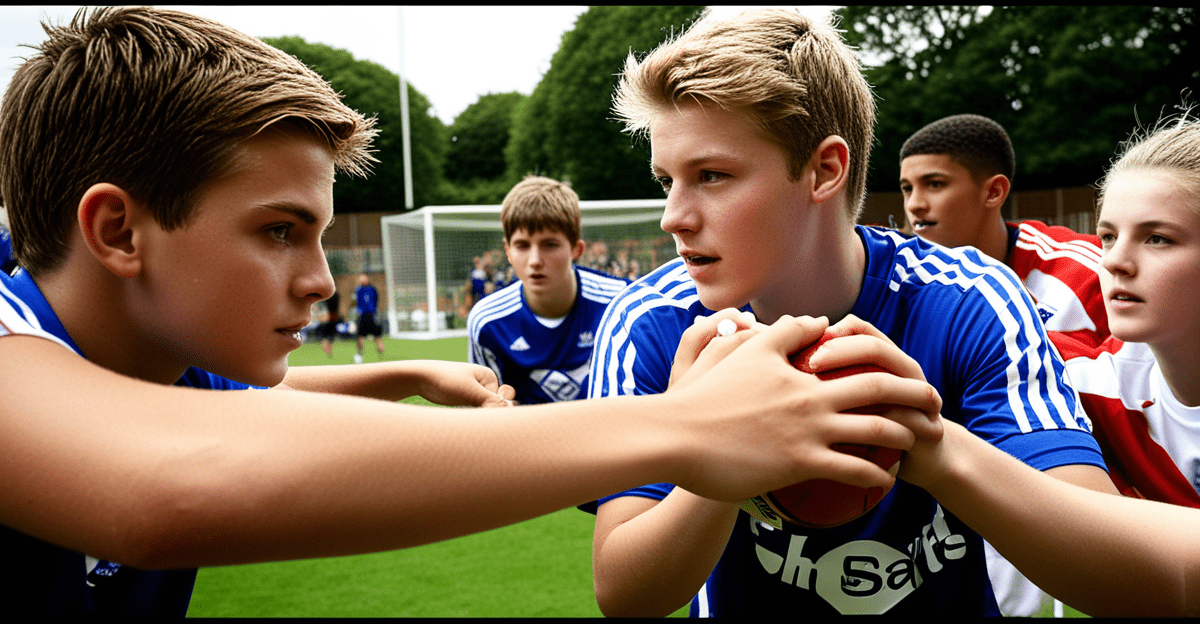Impact of UK Sports on Youth Engagement
UK sports play a significant role in youth participation by providing more than just physical activity—they foster vital social engagement and development. Participation in sports encourages young people to improve their physical health, build teamwork skills, and enhance social abilities, which are essential for personal growth.
How exactly do UK sports influence youth involvement? They offer structured environments where young people can connect with peers and mentors. This connection improves communication skills and encourages a sense of belonging. Additionally, involvement in sports often results in better academic performance due to improved discipline and time management learned through regular training and competition.
Also to see : How are UK sports initiatives supporting mental health and well-being?
Moreover, youth engagement in UK sports is a pathway to future opportunities. Skills gained such as leadership, cooperation, and resilience are transferable to educational and professional settings. Thus, the influence of UK sports goes beyond immediate benefits, shaping the long-term trajectories of young people’s lives.
In summary, the UK sports influence is deeply embedded in promoting holistic development, helping youth not only stay active but also thrive socially and academically.
Also to discover : What Are the Most Iconic UK Sporting Moments of the Past Decade?
Organised and Grassroots Initiatives Promoting Youth Participation
Grassroots sports and organised sport programmes are the backbone of youth participation in the UK. Grassroots sports typically involve community-led activities that are accessible and informal, providing a welcoming entry point for young people of all abilities. These initiatives often focus on enjoyment and inclusivity, fostering an early positive relationship with sport among youth. In contrast, organised sport programmes—such as school-based teams and club-led training—offer structured environments with clear objectives, rules, and competitions, aiming to develop specific skills and commitment over time.
School-based programmes play a crucial role by integrating physical activity into daily routines, encouraging consistent youth sport participation. Community-based schemes complement this by offering local venues and resources that cater to diverse interests and schedules, ensuring broader accessibility. Additionally, local sports clubs act as vital hubs that bridge grassroots and organised sport networks. They enhance accessibility and inclusion by welcoming young athletes from varied backgrounds, providing coaching, facilities, and social opportunities.
The differences between organised and grassroots sports lie mainly in structure and intensity. Grassroots focuses on broad involvement with minimal pressure, ideal for building foundational skills and increasing general social engagement. Organised programmes demand more regular commitment, promoting teamwork and discipline, which are critical for sustained youth participation and progression within sports. Together, these approaches create a comprehensive framework supporting young people to engage actively, develop physically and socially, and build lifelong sporting habits.
Government and Community Support for Youth Engagement
The UK government sports policies play a pivotal role in fostering youth participation in sports. These policies provide a strategic framework that promotes accessible and inclusive opportunities for young people across the country. Key elements include funding allocations specifically directed at supporting youth sport schemes, ensuring that financial resources reach grassroots organisations and organised sport programmes alike. This targeted funding helps reduce barriers, making it easier for children from diverse backgrounds to get involved.
Community engagement is strengthened through collaborative partnerships between local authorities, schools, sports clubs, and voluntary organisations. These partnerships enable the efficient delivery of programmes that promote physical activity and social inclusion. By pooling resources and expertise, communities can offer a wider range of activities tailored to different interests and abilities, enhancing overall youth participation.
Furthermore, government-backed initiatives often prioritise inclusion of disadvantaged youth and underrepresented groups. Special programmes focus on removing socio-economic and cultural obstacles to sports involvement, ensuring equitable access to coaching, facilities, and competitive opportunities. This holistic approach underpins sustained engagement, enabling young people not only to participate but also to benefit physically, socially, and emotionally from organised sporting activities.
Real-World Examples and Case Studies
Successful programmes across the UK vividly demonstrate how targeted efforts boost youth engagement in sports. For instance, initiatives combining grassroots sports with structured coaching have markedly increased participation rates among young people in diverse communities. One notable example is a national scheme that partners local clubs with schools, creating pathways for continuous involvement from casual play to competitive levels. This structure helps sustain interest and skill development, enhancing both physical health and social engagement.
Youth engagement case studies reveal that when programmes prioritize inclusivity and accessibility, there is a significant rise in social cohesion among participants. Many young people report improved confidence, teamwork abilities, and a stronger sense of community. These outcomes are vital indicators of the broader impact UK sports influence has on developing well-rounded individuals. Moreover, sports impact stories from participants consistently highlight transferable skills such as leadership and resilience, which benefit educational and career prospects beyond the playing field.
Evaluation of these programmes often utilizes participant feedback and performance data to measure success. Increased attendance, improved physical fitness levels, and qualitative improvements in social behaviour are common metrics. Collectively, these real-world examples underline that well-designed youth sport schemes are not just about boosting numbers but fostering lasting personal growth and positive societal effects.
Current Challenges and Opportunities in UK Youth Sports
Addressing challenges in youth sport is crucial for sustaining and increasing youth participation in UK sports. Financial barriers remain one of the most significant obstacles, with many young people unable to afford membership fees, equipment, or travel costs associated with organised sport programmes. Cultural factors also play a role; some communities may have limited awareness or support for certain sports, reducing accessibility and interest. Additionally, logistical issues like inadequate facilities or inconvenient scheduling can deter consistent involvement.
Declining participation rates in some sports highlight the need for targeted responses. These include adapting programmes to be more flexible and inclusive, ensuring activities match the interests and needs of diverse youth populations. Community outreach efforts focus on engaging underserved groups by tailoring initiatives that overcome specific local barriers. Innovations such as digital platforms for remote coaching and virtual engagement offer fresh opportunities to reach young people who might otherwise face participation challenges.
Future growth in youth engagement depends on sustained collaboration among stakeholders. Enhanced funding models designed to reduce costs at the grassroots level will support wider access. Moreover, expanding partnerships between schools, clubs, and community organisations can build more integrated support networks. By addressing obstacles and embracing innovative approaches, the future of youth sports in the UK holds promising potential for broadening involvement and enriching young lives through sport.





